The concept of the “greatest novel ever written” is a fascinating and often debated one, with literary critics, historians, and readers of all stripes offering diverse opinions. What makes a novel truly great? Is it the power of its language, its unflinching realism, its profound social impact, or a more subtle, lasting influence on the world? This list explores 12 novels that, for various compelling reasons, have consistently earned a place among the most celebrated works of literature in history.
1. Anna Karenina by Leo Tolstoy
Fans of sweeping sagas filled with adultery, gambling, marriage plots, and the intricacies of Russian feudalism often place Anna Karenina at the top of their “greatest novels” list. Publications like Time magazine have also bestowed this honor upon the novel since its complete publication in 1878.
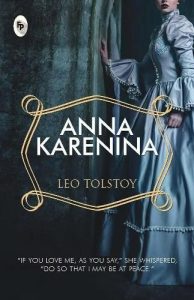
Written by Russian novelist Leo Tolstoy, this eight-part masterpiece tells the intertwined stories of two main characters: the tragic, disenchanted housewife, Anna, who abandons her husband for a younger lover, and Konstantin Levin, a landowner grappling with faith and philosophy. Tolstoy masterfully weaves together thoughtful discussions on love, pain, and family within Russian society, populating the narrative with a sizable cast of characters renowned for their realistic humanity. The novel was particularly revolutionary for its empathetic portrayal of women, vividly depicting the prejudices and social hardships they faced at the time.
2. To Kill a Mockingbird by Harper Lee
Harper Lee, considered one of the most influential authors of all time, famously published only one novel before its controversial sequel appeared shortly before her death in 2015. Lee’s To Kill a Mockingbird, published in 1960, instantly became a literary classic.
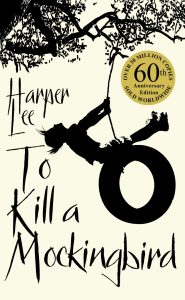
The novel powerfully examines racism in the American South through the innocent eyes of a clever young girl named Jean Louise, or “Scout” Finch. Its iconic characters, especially the sympathetic and just lawyer and father Atticus Finch, served as powerful role models and helped shift perspectives in the United States during a period of intense racial tension. To Kill a Mockingbird earned the Pulitzer Prize for Fiction in 1961 and was adapted into an Academy Award-winning film in 1962, further amplifying its story and characters’ influence on American society.
3. The Great Gatsby by F. Scott Fitzgerald
F. Scott Fitzgerald’s The Great Gatsby is frequently highlighted as an exceptional text for teaching students the art of critical literary analysis, making it a common read in schools. Told from the perspective of Nick Carraway, a young man who has recently moved to New York City and becomes friends with his enigmatic, nouveau riche neighbor, Jay Gatsby, the novel offers an intimate glimpse into the Jazz Age of the 1920s in the United States.
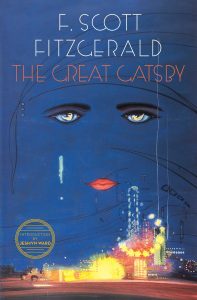
Simultaneously, it delivers a sharp critique of the elusive “American Dream.” Perhaps the novel’s most famous element is its iconic cover art—a haunting face projected onto a dark blue night sky above city lights—an image that subtly reappears within the text as a crucial symbol.
4. One Hundred Years of Solitude by Gabriel García Márquez
The late Colombian author Gabriel García Márquez published his most celebrated work, One Hundred Years of Solitude, in 1967. This novel chronicles seven generations of the Buendía family and the establishment and eventual destruction of their mythical town, Macondo, along with their last descendants.
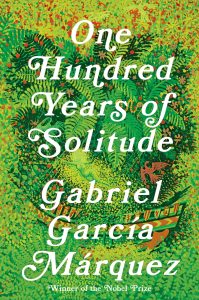
In a fantastical style, the novel pioneers the genre of magic realism, emphasizing the extraordinary nature of everyday things while mystical events are presented as commonplace. Márquez powerfully highlights the prevalence and influence of myth and folktale in recounting history and Latin American culture. The novel garnered numerous awards for Márquez, paving the way for his eventual Nobel Prize in Literature in 1982 for his entire body of work, with One Hundred Years of Solitude frequently lauded as his greatest triumph.
5. A Passage to India by E.M. Forster
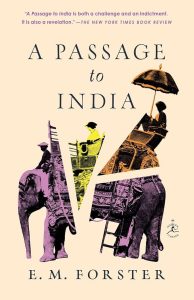
E.M. Forster penned A Passage to India after several trips to the country during his early life. Published in 1924, the book explores the relationships between Dr. Aziz, a Muslim Indian doctor, Cyril Fielding, an English professor, and Adela Quested, a visiting English schoolteacher. When Adela accuses Aziz of assault during an outing to the Marabar caves, located near the fictional city of Chandrapore, tensions escalate between the Indian and colonial British communities. The novel delves into the possibility of friendship and connection between English and Indian people, despite their profound cultural differences and the underlying imperial tensions. Its vibrant descriptions of nature, the Indian landscape, and the symbolic power imbued within these elements cement its status as a great work of fiction.
6. Invisible Man by Ralph Ellison
Often mistaken for H.G. Wells’s science-fiction novella, Ralph Ellison’s Invisible Man stands as a groundbreaking novel in its exploration of African American male identity. The unnamed narrator, who believes himself “invisible” to society, recounts his journey from the South to college and then to New York City.
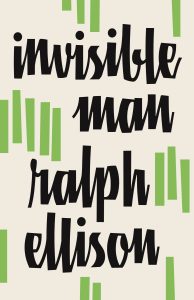
In each location, he confronts extreme adversity and discrimination, drifting through various jobs, relationships, and questionable social movements with a disoriented and ethereal mindset. The novel is celebrated for its surreal and experimental writing style, which delves deeply into the symbolism surrounding African American identity and culture. Invisible Man won the U.S. National Book Award for Fiction in 1953.
You may also like:
- Top 10 Best Romance Novels on Kindle Unlimited
- Top 10 Best Selling Crime Novels You Should Try
- Top 10 Gothic Novels of 2024 You Shouldn’t Miss
7. Don Quixote by Miguel de Cervantes
Miguel de Cervantes’s Don Quixote, arguably the most influential and widely recognized work of Spanish literature, was first published in full in 1615. Consistently regarded as one of the greatest literary works of all time, the novel tells the story of a man who adopts the name “Don Quixote de la Mancha” and embarks on a quest, fueled by an obsession with romantic novels of chivalry, to revive the custom and become a hero himself.
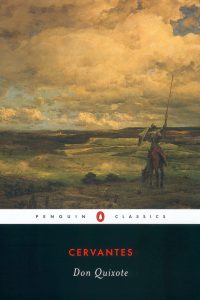
The character of Don Quixote has become an iconic and archetypal figure, inspiring countless major works of art, music, and literature since the novel’s publication. The text has been so influential that the word “quixotic,” derived from the character, was coined to describe someone who is “foolishly impractical especially in the pursuit of ideals; especially: marked by rash lofty romantic ideas or extravagantly chivalrous action.”
8. Beloved by Toni Morrison
Toni Morrison’s 1987 spiritual and haunting novel Beloved tells the story of Sethe, an escaped slave who has fled to Cincinnati, Ohio, in 1873. The novel profoundly investigates the trauma of slavery, even after freedom has been gained, depicting Sethe’s overwhelming guilt and emotional pain after she kills her own child, whom she names Beloved, to spare her from a life of bondage.
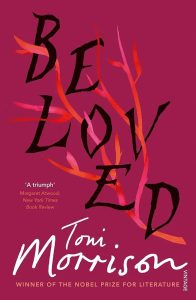
A spectral figure, bearing the child’s name, appears in the characters’ lives, embodying the family’s anguish and hardship and forcing them to confront their feelings and past. The novel was widely acclaimed for its unflinching portrayal of the psychological effects of slavery and the critical importance of family and community in the healing process. Beloved was awarded the Pulitzer Prize for Fiction in 1988.
9. Mrs. Dalloway by Virginia Woolf
Perhaps the most idiosyncratic novel on this list, Virginia Woolf’s Mrs. Dalloway meticulously describes a single day in the life of British socialite Clarissa Dalloway. Employing a unique combination of third-person narration and the internal thoughts of various characters, the novel uses a pervasive stream-of-consciousness style. This technique offers a deeply personal and revealing look into the characters’ minds, with the narrative heavily relying on character development rather than a traditional plot.
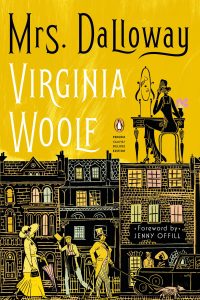
The characters’ thoughts encompass persistent regrets and reflections on the past, their struggles with mental illness and post-traumatic stress from World War I, and the pervasive effects of social pressures. The novel’s distinctive style, subject matter, and temporal setting solidify its place as one of the most respected and regarded works of all time.
10. Things Fall Apart by Chinua Achebe
The Western literary canon often prioritizes writers from North America or Europe, frequently overlooking accomplished authors and remarkable works of literature from other parts of the world. Chinua Achebe’s Things Fall Apart, published in 1958, is one such work of Nigerian literature that has overcome the biases of some literary circles to gain worldwide recognition.
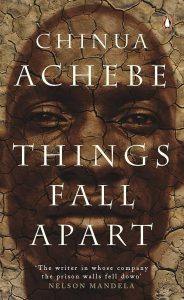
The novel follows Okonkwo, an Igbo man, detailing his family, his village in Nigeria, and the profound effects of British colonialism on his native country. The novel is a seminal example of African postcolonial literature, a genre that has grown significantly in size and recognition since the mid-1900s as African people have been able to share their often unheard stories of imperialism from the perspective of the colonized. The novel is frequently assigned in courses on world literature and African studies.
11. Jane Eyre by Charlotte Brontë
Charlotte Brontë’s Jane Eyre, another novel often assigned in schools, was initially published in 1847 under the pseudonym “Currer Bell” to conceal the author’s true gender. Fortunately, the landscape for women in literature has drastically changed since 1847, and Brontë now receives the well-deserved credit for one of history’s most groundbreaking novels about women.
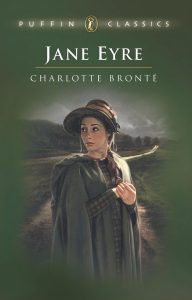
At a time when the author felt compelled to hide her identity, Jane Eyre offered a powerful narrative of individualism for women. The novel’s eponymous character evolves from an orphaned and impoverished girl into a successful and independent woman. The work seamlessly blends themes from both Gothic and Victorian literature, revolutionizing the art of the novel by focusing on the growth of Jane’s sensibility through internalized action and writing.
12. The Color Purple by Alice Walker
Although the epistolary novel (a novel presented as a series of letters) was most popular before the 19th century, Alice Walker revitalized the style with her 1982 novel The Color Purple, which earned both a Pulitzer Prize and a National Book Award.
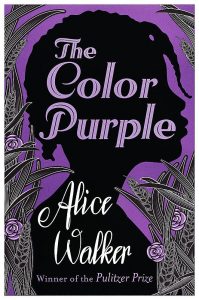
Set in the post-Civil War American South, the novel follows a young African American girl named Celie into adulthood through letters she writes to God and to her sister Nettie. Celie endures sexual abuse from her father and later her husband, chronicling her own suffering and growth, as well as that of her friends and family. The novel powerfully explores themes of sexism, racism, gender, sexual orientation, and disability through its ensemble of disadvantaged and damaged characters who, over time, learn to shape their own lives. The story was adapted into an Academy Award-nominated film in 1985 that, despite widespread critical acclaim, famously received no awards despite 11 nominations.